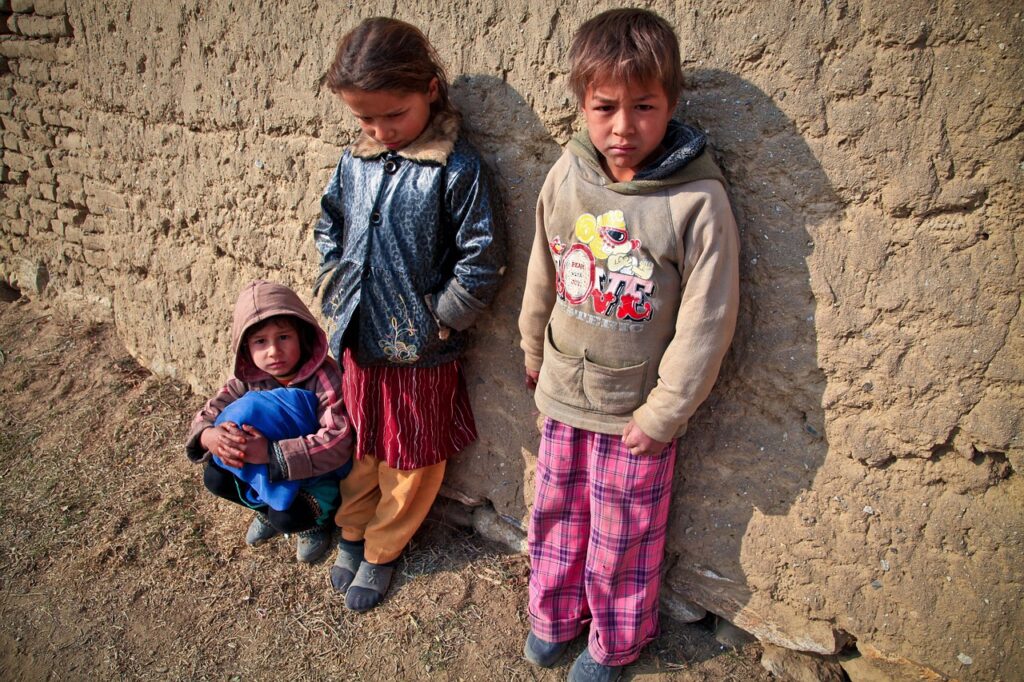Introduction to ‘Adverse childhood experiences’
In this sprint you will develop the following knowledge:
- I understand how adverse experiences and trauma (e.g. abuse, neglect, parental addiction) can impact on the birth parent/mother and baby during pregnancy, early years, and later life.
- I can talk to parents about domestic abuse and the impact this has on a baby.
- I understand that high levels of stress for a birth parent/ mother can impact on a baby’s development.
Many children have a hard time at home and don’t grow up in loving, stable households. Therefore, they don’t receive the love and care they need to grow up happy and healthy. Sometimes this results in potentially traumatic events that can have negative and lasting effects on both the health and the well-being of the child.
These potentially traumatic events are called adverse childhood experiences (ACEs), and range from physical, emotional, or sexual abuse, to parental divorce, or substance abuse by a parent.


Watch: Understanding ACEs: What are Adverse Childhood Experiences (ACEs)?
Office of the California Surgeon General
Watch the video below to develop your understanding of ACEs.
Using the link below, read through the information about adverse childhood experiences (ACES).

Read: ACEs and Toxic Stress: Frequently Asked Questions
Harvard University
- Whilst reading through, make notes about:
- What are Adverse Childhood experiences?
- How do Aces relate to toxic stress?
- What is trauma, and how does it connect to ACEs and toxic stress?
- What can we do to help mitigate the effects of ACES?
Develop your understanding of ‘Adverse childhood experiences’
Let’s think about the way in which we might work with people who have experienced trauma.

Read: Working definition of trauma-informed practice
GOV.UK
- Using the link above, visit the webpage and make notes on the 6 principles of trauma-informed practice:
- Safety
- Trust
- Choice
- Collaboration
- Empowerment
- Cultural consideration
Click on the headings below to see how professionals can develop trauma informed practice.

The purpose of trauma-informed practice is not to treat trauma-related difficulties, which is the role of trauma-specialist services and practitioners. Instead, it seeks to address the barriers that people affected by trauma can experience when accessing health and care services.
(GOV.UK. Working definition of trauma-informed practice. Nov 2019)
Reflect upon ‘Adverse childhood experiences’
Now you have learnt about ACEs and trauma informed practice, in this section we will consider how children are affected by domestic abuse and how you might be able to have a conversation with a parent and the range of support available.
We define domestic abuse as an incident or pattern of incidents of controlling, coercive, threatening, degrading and violent behaviour, including sexual violence, in the majority of cases by a partner or ex-partner, but also by a family member or carer. It is very common. In the vast majority of cases it is experienced by women and is perpetrated by men.
What is Domestic Abuse?
Use each of the links below to read about the different aspects of domestic abuse
- Coercive control (a pattern of intimidation, degradation, isolation and control with the use or threat of physical or sexual violence)
- Psychological and/or emotional abuse
- Physical or sexual abuse
- Financial or economic abuse
- Harassment and stalking
- Online or digital abuse

Read: Children affected by domestic abuse
Barnados
Domestic abuse impacts upon children in many ways. Using the link above, make a list of some of the effects upon children so that you are able to show professional curiosity if you notice these signs.

Read: Domestic abuse: how to get help
GOV.UK
There are many places where support for domestic abuse can be accessed. Using the link above, make notes that you could use to have a conversation with a parent.
Further Resources
- If you want to learn more about Adverse Childhood Experiences you can undertake this free training.
- Adverse Childhood Experiences – Free training course providing an introduction to Adverse Childhood Experiences, brain development in the Early Years, the impact of childhood adversity, social, community and health impacts of ACES Early Trauma, protective factors, looking at ACEs through a trauma informed lens and building resilience. You will need to create a free account to access the content.






